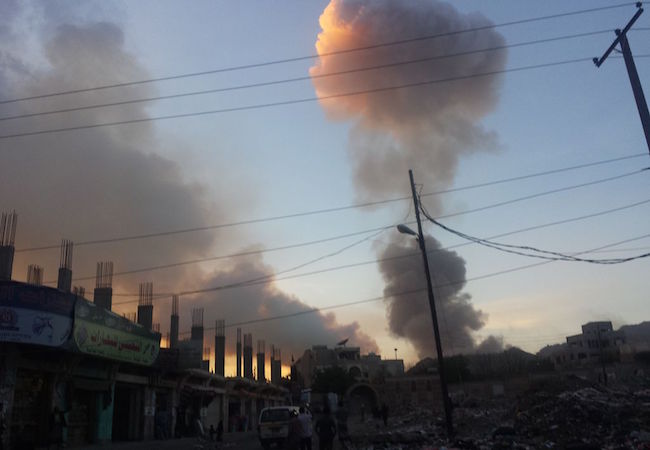Yemen: Political negotiations halted. Humanitarian crisis continues

By Rene Wadlow
On Saturday, 6 August, the political negotiations to stop the armed conflict in Yemen came to a halt − not a great surprise but a bad sign nevertheless for the many Yemeni suffering. The negotiations sponsored by the United Nations and led by Ismail Ould Chekh Ahmed held in Kuwait had been broken off before, but this time the break may be a sign of the future division of the country. The idea of a “national unity government” had been often mentioned but no serious steps in that direction have been taken. Ould Cheikh Ahmed stated the obvious saying “The biggest dilemma we faced was a deficit of trust between the parties.” He urged all to initiate confidence-building measures and to “refrain from adopting unilateral measures.”
By “unilateral measures”, he was thinking of plans to divide the country largely along the lines of the territories now controlled by one faction and the other. There is a strong bias among government representatives at the UN against the break up of a State, especially if done only by military means. The creation of South Sudan was in practice a division along the lines of military control, but the break was “blessed” by a referendum said to express the will of the people. Somalia has for all practical purposes split into three, perhaps four, separate States, but no one wants to say so.
A return to at least two Yemeni States would not be a radical change as there was never a really functioning single State. However, there are deep set fears that if the UN is willing to accept the divisions of one country, no one knows how many may follow. While the governments in the UN were willing to sanction the break up of the Yugoslav federation and to accept as members the former Yugoslav republics, there has been an unwillingness to accept the break up of the Serbian republic and to admit the existence of Kosovo.
On behalf of the Association of World Citizens, I had stressed the need to start planning for post-war renewal in Yemen, even before there was a post-war condition. Yemeni society is clan-extended family based, and the basic needs approach proposed is a family-focused approach. A basic needs approach to post-war reconstruction is as valid for two States as well as for one. I do not in particular advocate the division of Yemen, but division may be the only political structure on which the factions can agree. The crucial issue at hand is to build the foundations of a relatively peaceful society in which socio-economic development can take place.




